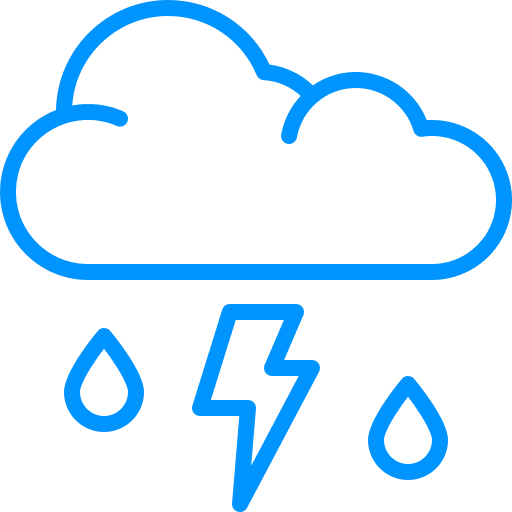Compare landlord insurance brands in Western Australia
Compare other products
We currently don't have that product, but here are others to consider:
How we picked theseFinder Score for landlord insurance
Finder Score assesses more than 40 home and contents landlord insurance products for their price and features, assigning each product a score out of 10.

Finder survey: Do Australians from different states think home insurance is worth it?
| Response | WA | VIC | SA | QLD | NSW |
|---|---|---|---|---|---|
| Yes | 73.73% | 68.94% | 66.67% | 69.26% | 65.24% |
| I don't know | 13.56% | 12.97% | 16% | 12.99% | 13.39% |
| No | 12.71% | 18.09% | 17.33% | 17.75% | 21.37% |
Data for ACT, NT, TAS not shown due to insufficient sample size. Some other states may also be excluded for this reason.
Landlord insurance WA cover options
Landlord insurance can be broken down into three types of cover:
- Home insurance. Home insurance, or building/building-only cover, offers cover for your home and other fixtures on your property against damage from fires, storms, theft and vandalism. Cover usually provides additional protection against loss of rent due to damage rendering the property uninhabitable or damage to shared areas such as pools and gardens.
- Contents insurance. Contents cover protects any of your household possessions and any other property you have on site against the same risks as home insurance. Additional options are usually available for communal items like pool equipment or outdoor furniture.
- Home and contents insurance. Offering total protection for your property and everything inside, this is the most comprehensive level of cover available to landlords and includes optional cover for both rental default and damage or loss caused by tenants or their guests.
What should my landlord insurance WA policy cover?
Every landlord faces slightly different risks but if you live in Western Australia, you most likely want to get cover for the following:

Storms and floods
The weather is particularly volatile in WA and global warming is increasing the number of storms and floods that occur in WA. Storm cover is included as standard with most landlord insurance policies but you'll generally need to pay extra to get flood cover included.

Fire
This can cover you if a tenant causes a fire and damages or destroys your property. It can also cover damage due to bushfires which are becoming increasingly common across WA.

Accidental damage
Some landlord insurance policies can cover you for accidental damage by tenants to your property and its belongings. This could be particularly helpful if your property is furnished.

Theft
This can cover you if your tenant steals from you. It can also pay for damage if someone else breaks into your property.
What additional benefits can landlord insurance in WA cover?
As well as the items listed above, you can often add these additional benefits to your landlord insurance:
- Loss of rent. This can cover you if the tenant doesn't pay rent they owe you and leaves your building without giving the required notice, or is legally evicted.
- Tax audit costs. If the ATO conducts an audit of your financial affairs, landlord insurance can cover the professional fees you incur to defend yourself.
- Legal liability cover. If a tenant dies or suffers an injury at your property and someone sues you, legal liability can protect you.
- Replacement of locks. If a tenant is evicted and doesn't hand over the keys, landlord insurance can cover the costs.
- Removal of tenant's possessions. If you've made an insurance claim for loss of rent, some policies can cover the cost of removing the tenant's possessions from the property.
Who offers landlord insurance in WA?
Australian home insurance providers usually aren't state-specific, which means homeowners in Western Australia can access cover from an extensive range of trusted insurance brands, including the following:
What else do I need to know as a landlord in WA?
While landlord insurance is virtually the same across the country, each state has slightly different rules. Here's what you need to know as a landlord in Western Australia:
- Bond and advance rent. You can ask for a bond of up to four week's rent unless you rent the place for more than $1,200. If that's the case, there is no upper limit. You can also ask for two weeks advance rent.
- Rent increases. You can increase the rent once every six months with a 60-day notice. In a fixed-term arrangement, this also needs to be stated in the agreement or else you'll need to wait until the agreement ends. Your first increase can't occur until at least six months after the tenancy starts.
- Ending a tenancy. You must let your tenant know 30 days before a fixed lease ends. If it is a periodic lease, you need to give them a 60-day warning unless you have a valid reason (such as selling the house or tenant not paying rent), in which case you can shorten the notice.
- Pets. As a landlord, you're in control, as tenants need your written permission if they want to keep a pet in your rental property. You're also allowed to charge a "pet bond" of up to $260.
- Access for inspections. You're only allowed four inspections per year and you'll need to give a notice period of between 7 and 14 days before each one.
FAQs about landlord insurance in WA
Sources
Ask a question
More guides on Finder
-
Qantas Landlord Insurance review
Find out why Qantas landlord insurance could be a good fit for your rental property.
-
CBA Landlord Insurance Review
Read our break down of CBA landlord insurance.
-
RAA Landlord Insurance review
Find out if RAA landlord insurance has a policy that’s right for you.
-
Short-term rental and Airbnb insurance
Find out how to get short term rental and Airbnb insurance
-
Apia Landlord Insurance
Your guide to Apia Landlord Insurance.
-
Coles Landlord Insurance review
Your guide to Coles Landlord Insurance.
-
NRMA Landlord Insurance Review
Our quick breakdown of NRMA Landlord Insurance.
-
Allianz Landlord Insurance review
Find out if Allianz Landlord Insurance is right for you with our review.
-
The best landlord insurance in Australia – 3 expert picks
The best landlord insurance is the one that you can trust to protect your investment when you're not there.
-
Kogan Landlord Insurance Review
How does Kogan landlord insurance compare? See how it works, and some of the fine print to look out for.
